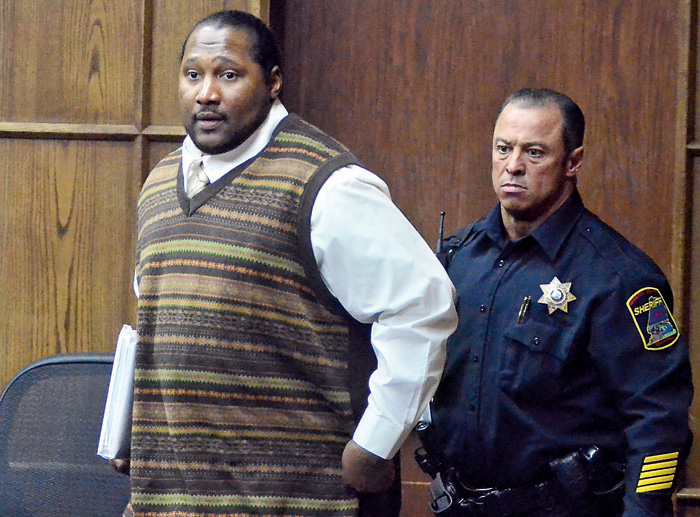Fredrick Brown's appeal of decades-old murder plea holds serious risk
Friday, January 1, 1904
If twice-convicted murderer Fredrick "Bay Bay" Brown wins his legal gamble, he could be freed in weeks from prison, where he has spent the past 20 years.
But if he loses, he faces the possibility of an extra 36 years.
Attorneys for both sides will give their closing arguments to the jury today in the first of two murder trials that Brown faces. In 1993, he pleaded guilty to two murder charges and was sentenced to two life prison terms to run concurrently. He appealed those sentences, asking for a trial on both charges. A judge granted his appeal.
Brown pleaded guilty to killing Samuel Richard Scott on Sept. 5, 1991, and to killing Corey Strickland with a shotgun blast to the stomach on March 24, 1992. Brown was free on bond in the Scott case when Strickland was killed.
Following Brown's plea, Judge Douglas Meyer sentenced him to two life sentences to run together. Under Tennessee law, that meant he would be eligible for parole in 36 years, or by 2028.
But on appeal, another judge ruled that, under state law, his two life sentences should have run consecutively because they were from separate cases.
Had the consecutive sentencing been imposed, Brown would have faced 72 years in prison. If he had never appealed the sentencing, he could have been released on parole in 2028. If he loses both trials and is sentenced to consecutive life terms, he won't be parole eligible until 2064.
A date for the trial in Strickland's death was not available.
The trial for Scott's death began Tuesday, and prosecutors Lance Pope and Neal Pinkston have called police investigators and an eyewitness to the shooting of Scott.
On Wednesday, Brown's attorney, Donna Miller, called Sylvia Fuller, Brown's mother, to testify. Fuller, at times tearful, testified that Brown was afraid of Scott. She said her son told her Scott had robbed him at gunpoint of a watch and other jewelry.
She recounted riding with her son after he told her about the alleged robbery. They saw Scott while driving, she testified, and he used his hand to pantomime a gun to his head, then laughed.
Brown chose not to testify.
Pinkston played a tape recording of an interview Brown had with then-Chattanooga police Detective Tim Carroll. In the recording, Brown admits he saw Scott weeks after the robbery, left to get a 9 mm Ruger handgun and returned to shoot Scott.
Brown told Carroll, now assistant chief of the Chattanooga Police Department, that he thought he'd only shot Scott in the leg and didn't intend to kill him.
A medical examiner's report showed Scott was shot five times, with bullets striking his kidneys, liver and lungs.

